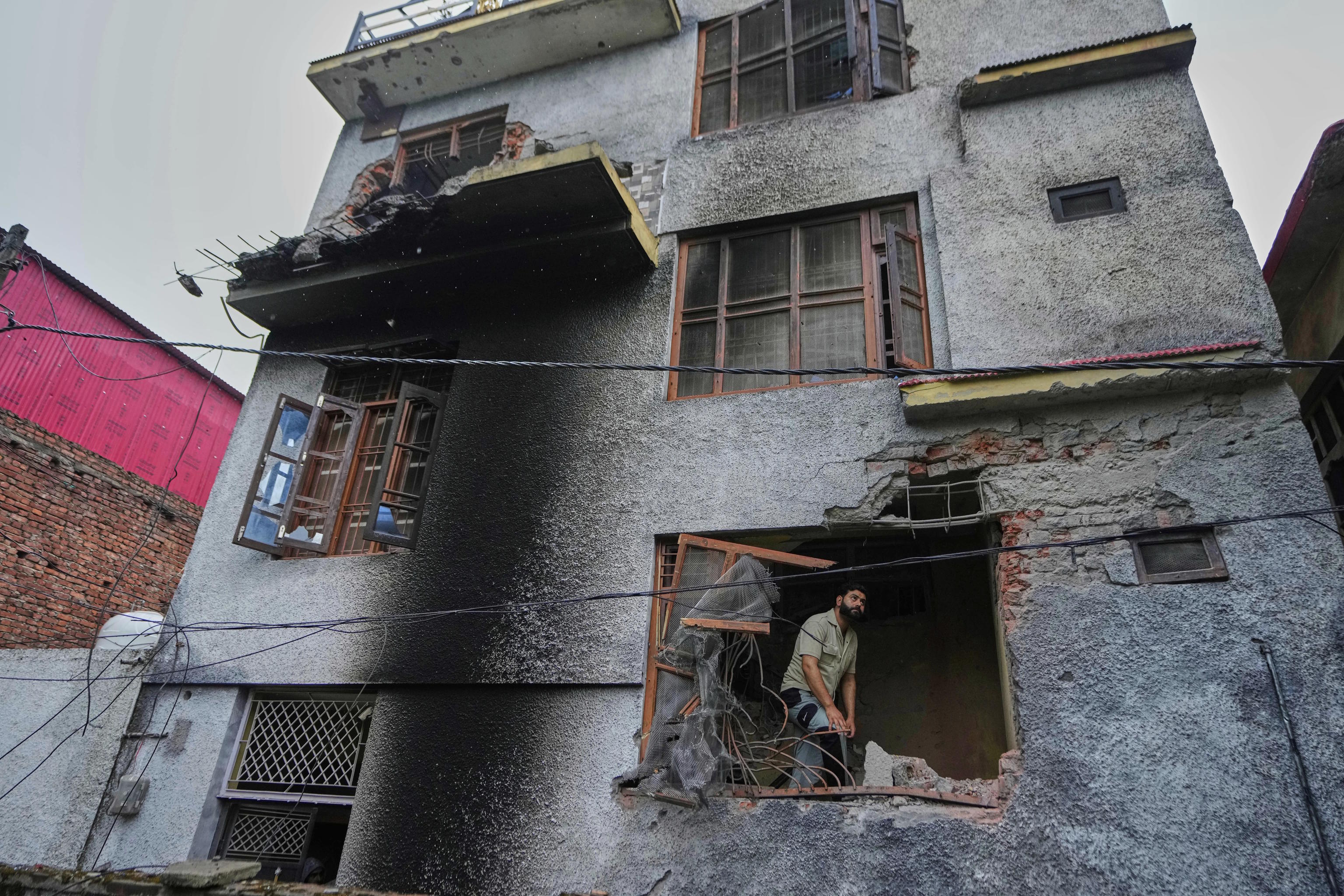Sirens blared on Thursday night in the city of Jammu, south of Indian-administered Kashmir. Everything went dark. The blackout was sudden. In villages near the Line of Control, the volatile de facto border, the disturbing sound of mortars was heard. Unlike previous nights, the artillery exchange was more intense. Meanwhile, in the sky, several drones exploded in the air shot down by Indian air defenses.
There is no respite in the long-standing conflict between India and Pakistan. Early this morning, the Indian army claimed to have thwarted missile and drone attacks launched by the neighboring country aimed at various points in Indian territory in Kashmir, as well as the regions of Punjab, Rajasthan, and Jammu, where defense systems shot down eight Pakistani missiles targeting military bases. Several Indian media outlets reported that a Pakistani Air Force pilot was captured after ejecting from his combat aircraft over the city of Jaisalmer in the border state of Rajasthan.
Mud bunkers and first aid courses for children: how Kashmir has prepared for war
On Friday morning, Delhi reiterated that Pakistani armed forces had launched "multiple drone and other weapon attacks" along the western border in the past hours and had violated the ceasefire on the Line of Control separating Indian and Pakistani Kashmir.
"We do not want war," said Kashmir village residents caught in a deadly crossfire between the two giants of the Indian subcontinent to local reporters from Al Jazeera. In the Poonch district in Indian Kashmir, 10 kilometers from the disputed border, at least 11 people died on Wednesday from the first retaliatory bombing by the Pakistani side. "Two brothers were crushed to death after a projectile exploded on their house," a resident recounted.
"The bombing has continued intermittently since Wednesday," another resident asserted. Several unverified videos posted on social media show the bloodied and amputated body of a Poonch teenager being transported in a van alongside the lifeless body of a child with a head shattered by a projectile.
Pakistan's attacks throughout Thursday and early Friday were in response to the military offensive launched by India on Wednesday, described by Pakistani minister Shehbaz Sharif as an "act of war." For Delhi, their initial missile strike was in retaliation for the brutal massacre in Kashmir at the end of last month, where Islamist militants killed 25 Hindu tourists and a Nepali guide. From the outset, Prime Minister Narendra Modi's government directly accused Pakistan of being behind the attack through terrorist organizations it has supported for decades.
Islamabad has been reiterating these days that its government had nothing to do with the attack in Kashmir. They also deny the presence of terrorist groups operating in the areas hit by Indian missiles on Wednesday, as claimed by Delhi. "If they attack us, there is no doubt we will respond firmly," warned Indian Foreign Minister S. Jaishankar yesterday before the Pakistani military launched the overnight airstrike.
Part of the international community has mobilized to call for an end to the dangerous military escalation between the two nuclear powers. Several prominent global actors are trying to steer the two countries away from total war. From the United States, one of India's main allies, Secretary of State Marco Rubio spoke on Thursday with the Pakistani Prime Minister and Indian Minister Jaishankar, urging both parties to immediately de-escalate.
"What we can do is try to encourage these people to de-escalate, but we are not going to get involved in the middle of a war that fundamentally is not our business and has nothing to do with the United States' ability to control it," Vice President JD Vance stated in an interview on Fox News.
Many analysts from both countries have expressed concern in recent days that both India and Pakistan have lost the United States as the main mediator of the conflict. Throughout the seven decades of confrontation between these two countries, Washington's intervention has been crucial in preventing a broader war on several occasions. However, now, following the vice president's recent statements, it seems that the White House is not very interested in getting involved.
